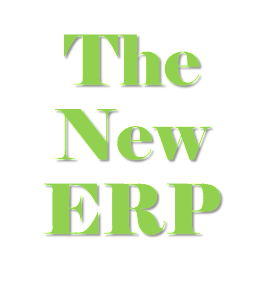Stephen Kelly, CEO of Sage, announced on Tuesday, 28 July 2015, that "as of today [Sage] will no longer use the word or the term ERP to describe any of [its] products." The announcement was made during Kelly's keynote address at Sage Summit 2015 in New Orleans, Louisiana.
 Now, why, you might ask, would a company, long promoting itself as a top provider of ERP (enterprise resource planning) systems for small to mid-sized businesses decide to end the use of the 'ERP' appellation to its products.
Now, why, you might ask, would a company, long promoting itself as a top provider of ERP (enterprise resource planning) systems for small to mid-sized businesses decide to end the use of the 'ERP' appellation to its products.
That's a legitimate question.
Kelly's answer was this: "We believe 'ERP' is a 25 year-old industry term, characterized by cost overruns and, in some cases, even business ruin that has been imposed on you [the ERP buyer] for the benefit of others." He adds, "To the finance directors of the world, 'ERP' stands for Expense, Regret, [and] Pain. Sadly, [the ERP software] industry has a long history of invasive, disruptive initiatives that have been carried out at the expense of [its] customers."
For the greater part, I am in wholehearted agreement with Kelly's sentiments.
Happy to re-do the 'ERP' term
Perhaps now that the CEO of an international company suggests that something needs to be done with the term 'ERP,' the whole idea will gain traction.
For whatever it's worth, I have been advocating for a remake for more than half a decade.
Back in 2008, I started using the term "the New ERP." In 2009, I started writing about "the New ERP" in my blog (which is no longer active, by the way). You can read Part 1 of the series by following this link.
Unlike CEO Kelly, I did not suggest that 'ERP' can simply be done away with like a soiled rag.
What I suggested is that over the course of the first period in ERP history, ERP cam to stand for "Everything Replacement Project." This, I declared to be "the Old ERP." After the first one, two or three ERP projects that most companies had gone through between, say, the late 1980s and 200d5, most enterprises no longer actually needed "everything replacement projects."
By the end of the first half-decade of the 21st century, the systems and code underlying most of the software employed in so-called 'ERP' systems had matured to the place where integrations and extensions with Web applications and services, specialized third-party vertical applications, and mobile apps could be made simpler, faster and more effective—and, generally, at much lower cost.
The New ERP
Because this had come to be the case in the software industry, I began advocating for what I called "The New ERP" or "Extended Readiness for Profit." I said, what most of our clients now needed was not yet another "Everything Replacement Project"—a re-do of "the Old ERP;" rather, with globalization, the Internet-empowered consumer, and other pressures on the enterprise, what our clients needed now—more than anything—was "Extended Readiness for Profit."
What our clients needed then—and need now—are applications that extend the enterprise's ability to create profits through insights, mobility, simplicity and collaboration (both internal and across the supply chain, in many cases).
I find myself in agreement with Stephen Kelly and Sage. Or, perhaps, I should say, Stephen Kelly finds himself in agreement with me and my take on the 'ERP' terminology.
####################################################
We would be interested in hearing what you have to say about your 'ERP' experiences and needs for the future.
####################################################
Follow us on Twitter: @RKLeSolutions and @RDCushing
LIKE us on Facebook: RKL eSolutions and GeeWhiz2ROI


